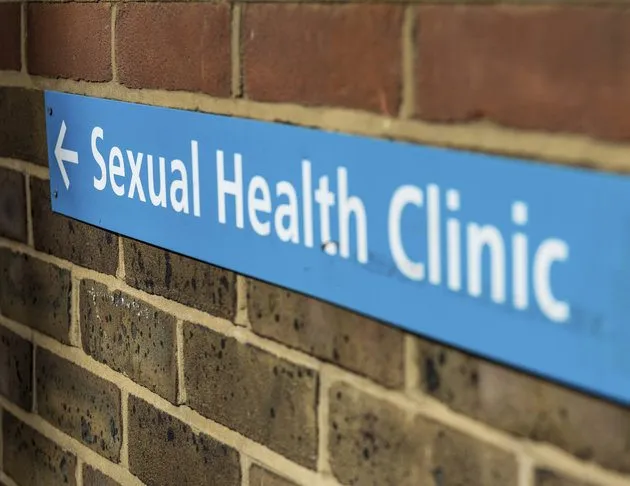What are the symptoms of gonorrhoea? And what is super gonorrhoea? Here’s everything you need to know

Cases of gonorrhoea have are on the increase among men who have sex with men.
This STI has recently been making headlines, but how can we spot the signs of it?
Gonorrhoea, sometimes called ‘the clap’, is a sexually transmitted infection caused by the bacteria Neisseria gonorrhoeae or gonococcus.
While the bacterial infection cannot be passed on through kissing or sharing a bath with somebody already carrying the bacteria, it can be transmitted by sexual contact or sharing sex toys.
The bacteria can be spread to many parts of the body. The urethra (the tube that carries urine from the bladder to outside your body) can be infected by the bacteria. What’s more, the cervix and the rectum can also be infected. There have been cases where the STI has infected people’s eyes and throat, but these are more uncommon sites of infection.

In general, people who are infected by the bacteria experience symptoms of a green or yellow discharge coming from the penis or vagina. If the bacteria infects the rectum, people can experience discomfort, pain or discharge coming from the back passage.
For women, other symptoms may include pain or a burning sensation when passing urine. They might also experience an unusual vaginal discharge, normally watery and green or yellow in colour. Lower abdominal pain, heavy periods or bleeding between periods are more uncommon symptoms.
Men too can experience pain or a burning sensation when urinating. For uncircumcised men, the foreskin might become inflamed and tender. Some report having pain in the testicles and surrounding area, but this is rare.
Although eye infections caused by gonorrhoea are more uncommon, they can result in symptoms similar to conjunctivitis (sometimes referred to as ‘red eye’). A splash of infected semen or vaginal fluid to the eye might result in itching, redness to the white part of the eye, and discharge.
Throat infections caused by the bacteria can sometimes result in a sore throat.
Related: You’re more likely to get these STIs than ever before
What should I do if I have the symptoms?
If you experience any of these symptoms, you should seek medical advice. This could be at either a sexual health clinic or GP practice.

(Getty)
Perhaps most importantly, some people infected with gonorrhoea do not experience any symptoms at all.
Dr Seán Cassidy is a specialist sexual health and HIV doctor at London’s 56 Dean Street Clinic. He explains the significance of people not experiencing symptoms: “This so-called “asymptomatic reservoir” is likely to be why we still see such high rates among gay and bi men in London.”
PrEP (Pre-Exposure Prophylaxis) is a once-daily tablet that prevents somebody becoming HIV positive. It was at the heart of controversy, with critics claiming that it would encourage more people to stop using condoms and increase the rates of STIs.
“A lot of people think that with the advent of PrEP, other STI rates will shoot up and that may actually be the case in the short term,” explains Dr Cassidy. “However, people taking PrEP are advised to test three-monthly, so over the longer term we could in fact see a drop in infections overall as those people with asymptomatic infections are picked up early and successfully treated.”
Practicing safer sex, like using condoms and going for regular sexual health checks can be effective ways of ensuring you don’t pass on the bacteria to your partner and vice-versa.
If gonorrhoea is left untreated, however, it can result in more serious complications. These might include infertility and pelvic inflammatory disease. For pregnant women, the STI can be passed on to their unborn baby and could result in permanent blindness.

A doctor talks to her patient (stevanovicigor)
What about ‘super gonorrhoea’?
This antibiotic-resistant strain of gonorrhoea has made it to the UK, causing alarm amongst public health experts.
“The term ‘super gonorrhoea’ refers to any strain of the infection that is resistant to the first-line antibiotics (Ceftriaxone and Azithromycin),” says Dr Cassidy.
“This isn’t necessarily a new concept as gonorrhoea used to be treated with tablets alone, before developing resistance and now recommendations state that it should be treated with both tablets and an injection.
“If this treatment becomes ineffective it means that treatment options are severely limited.”

A man in the United Kingdom is reported as having acquired the strain of ‘super gonorrhoea’ and Public Health England says that this is the first time the infection cannot be cured with first-line antibiotics.
Looking at the global picture, Dr Cassidy explains how this new strain of gonorrhoea may have spread across the world: “The strain currently being reported in the media appears to have originated in South East Asia and the man in question acquired it through heterosexual sex.
Related: UK report shows male prisoners are frequently being denied access to condoms
“There have been isolated cases reported in Japan and Sweden.”
Those working in the sexual health sector had been warning of the potential for an outbreak of this antibiotic-resistant strain.
“Even though it’s extremely rare it’s important that we aren’t complacent because it could very easily spread through the gay community.”
Unfortunately, sexual health does not occur in a political vacuum. Serious concerns are being raised by both clinicians and service-users about significant funding cuts to sexual health services.
“Super gonorrhoea is worrying for a number of reasons, not least because the government is pursuing an agenda of slashing public funding for sexual health services,” argues Dr Seán Cassidy. “Many GUM clinics have had to shut down and those that remain are struggling to cope under the strain of the additional demand.”
Should you be concerned about any symptoms, seek medical advice from your local sexual health clinic or GP.
If somebody is diagnosed with gonorrhoea, informing any of their sexual partners can prevent future cases of the STI. Dr Cassidy says: “it goes without saying that it’s really important to inform recent sexual partners to prevent the infection from spreading further.”

